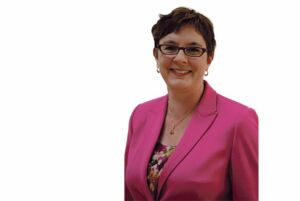Opinion
Living in an Expat World | Will I find a new network in a foreign city?
This article is more than 13 years old.

I still remember my very first day in Aarhus, full of anxiety of what was to come. I was mainly occupied with the question: will I find a new network in a foreign city? Having left behind a large network in my hometown in Belgium, I found myself on shaky ground for the first time in my life. Who should I turn to for help or a spontaneous trip to the beach? Here I was, me myself and I, trying to build a new life in a new city.
This is a question asked by most newcomers to Denmark. In the Aarhus area, the ground is not so shaky thanks to International Community, the leading network for internationals and international Danes.
However, International Community is not alone in the endeavour to build a foundation for expats in Denmark. Organisations, companies, institutions of higher education and public authorities alike have realised that a firm ground to stand on with direct access to a new network is crucial for attracting and retaining international talent. Together we try to find fields where a little effort makes a huge impact, without compromising quality and ambition.
In fact one could argue that our work is based on networking or the creation of networks. We network all the time and have representatives all over the country in order to make a difference for you, the expat in Denmark. Through a wide variety of network activities, we have been able to build a bridge between you and the society you became a part of when arriving in Denmark.
When I arrived 15 years ago and asked myself questions about how to build a new life here, much less focus was given to expats and the accompanying family compared to today. Danish society in general has come a long way in those years, and decision-makers have set more projects in motion.
Since March 2012, International Community has been the lead partner in a unique project focused on the attraction and retention of global talent, which includes all 19 councils in Central Region Denmark. The project partners co-operate to the benefit of all the internationals in the region by sharing best practice and developing new initiatives across city limits. At the same time, this joint effort is crucial to the international profile of the region and the companies who need to attract, welcome and retain international talents and their families in order to compete internationally. Networking truly is key, for both our partners and us, in
order to succeed.
So here’s hoping that International Community and our network will be able to make a difference and improve the framework conditions so that you, your family and future newcomers are able to settle
easily in Denmark.
About










































